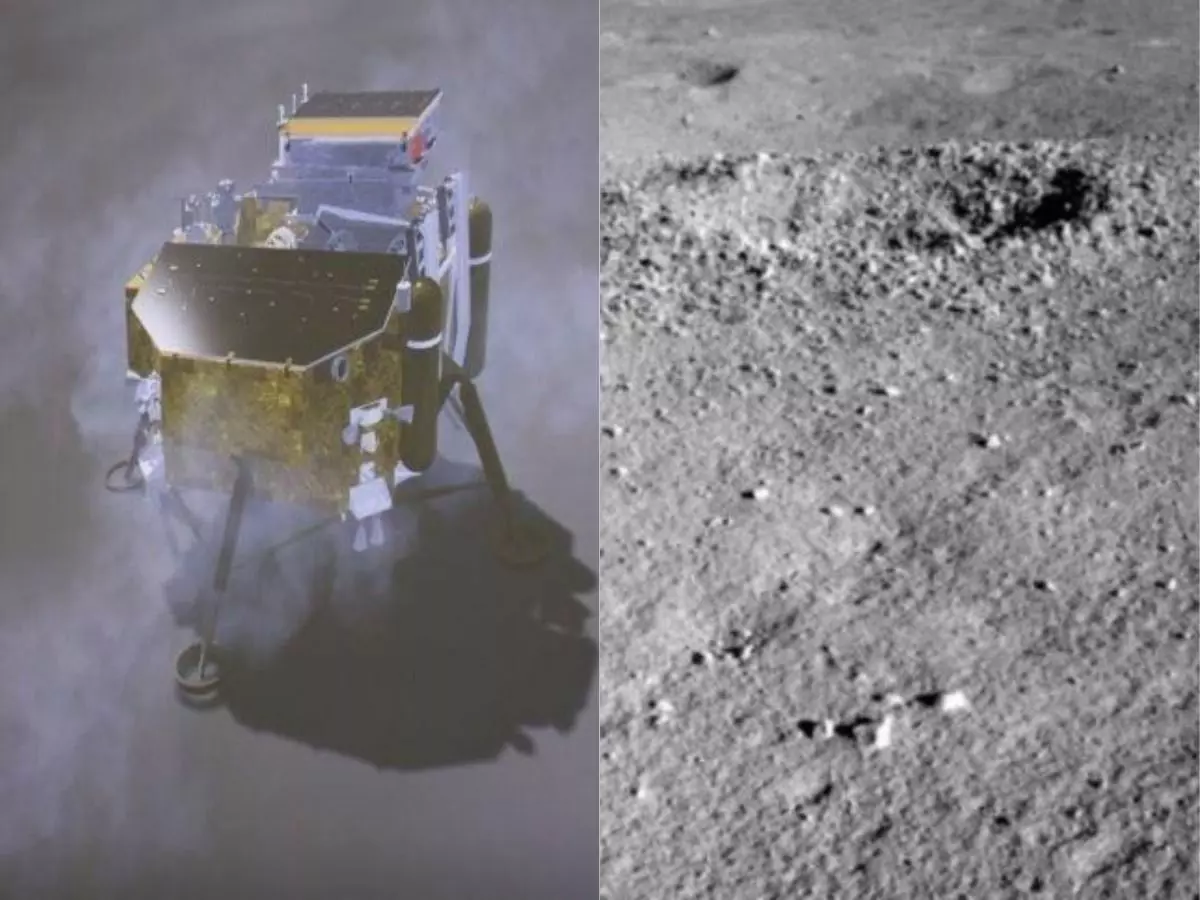China's Chang'e 4 Lander Has Found A Weird Gel-Like Substance On The Far Side Of The Moon
China¡¯s Chang¡¯e 4 mission is currently exploring the far side of the Moon. Facing away from Earth at all times, it¡¯s an area of our satellite we know the least about. And now, it seems the rover trundling around there may have found something strange

China's Chang'e 4 mission is currently exploring the far side of the Moon. Facing away from Earth at all times, it's an area of our satellite we know the least about. And now, it seems the rover trundling around there may have found something really strange.

Images courtesy: China Lunar Exploration Project
The Chang'e 4 landed on the Moon earlier in January this year, immediately sending back photos of the strange landscape, and also went about growing cotton in the microgravity there, as part of an experiment. Now, the lander has uncovered a strange "gel-like" substance on the Moon's surface.
The mission's Yutu-2 rover uncovered the mystery on its lunar day 8, what would have been July 25 here on Earth. Apparently the discovery was such a mystery that the scientists behind the mission decided to ignore all the other exploration plans they'd had for the rover in favour of pursuing the study of the substance

According to Chinese language publication Our Space, the gel was found in a lunar crater. They noticed it because the substance was an odd colour and texture, so it stood out from its surroundings. The scientists have not yet released any details on what exactly the substance looked like, except that it was gel-like and an odd colour. Some experts believe it might be melted glass, formed when a meteorite hit the Moon's surface.

Aside from this mystery, the Chang'e 4 lander is expected to conduct other scientific tests. It is supposed to use its neutron radiation detector and low-frequency radio detector to examine the composition of the Moon's crust on the far side In order to do this, the lander performs analysis and experiments during the lunar day (about 14 Earth days), and "sleeps" during the cold lunar night in order to preserve power.
So the new gel-like substance will take some time to identify remotely. But if we're successful, it could give us insight into the formation of the Moon and the "visitors" it sees from space.
